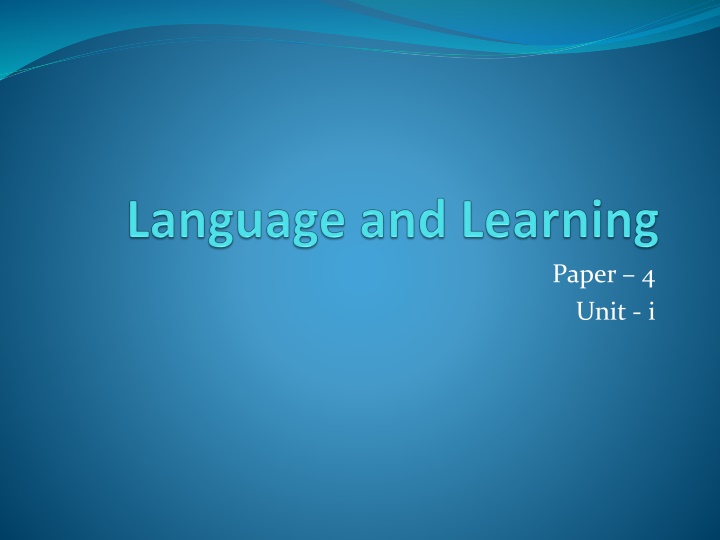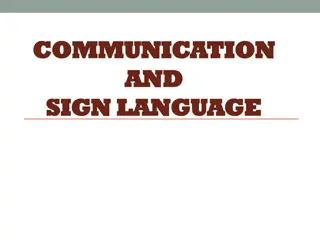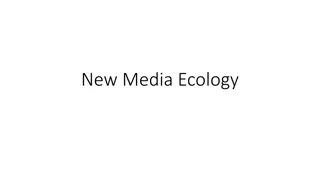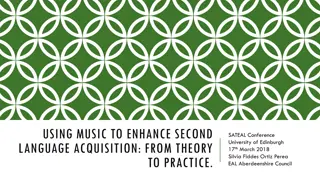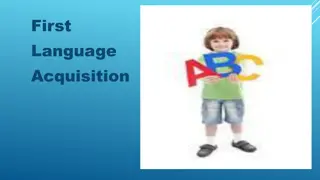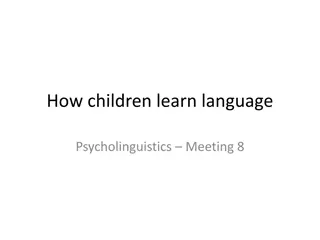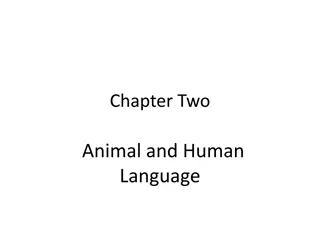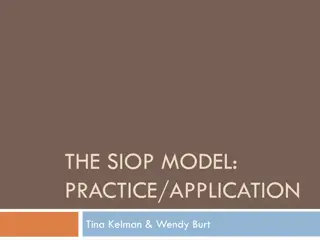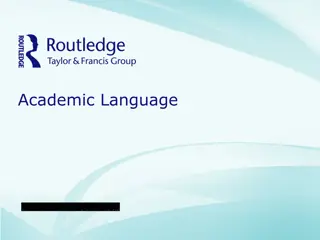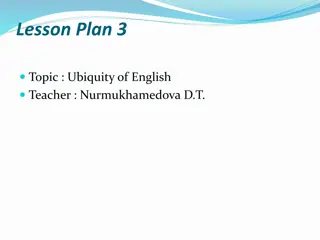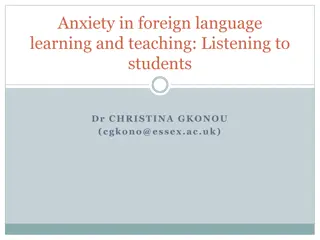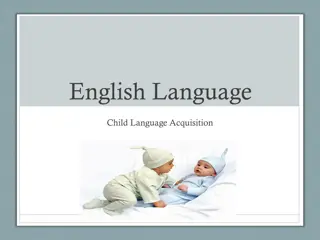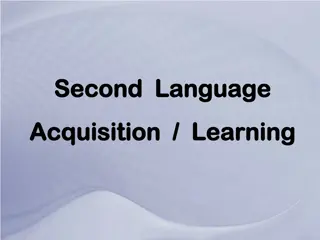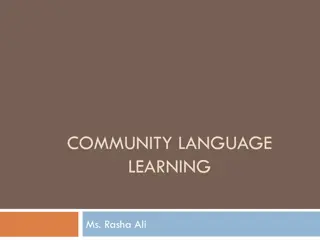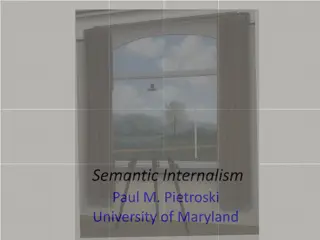Language Acquisition: Understanding Human Communication Systems
Language acquisition is the process of acquiring the capacity to perceive and comprehend arbitrary signals used in human communication, such as voice sound, gestures, and written symbols. It involves the acquisition of complex sentences and the ability to express thoughts, feelings, and ideas verbally and non-verbally.
Download Presentation

Please find below an Image/Link to download the presentation.
The content on the website is provided AS IS for your information and personal use only. It may not be sold, licensed, or shared on other websites without obtaining consent from the author.If you encounter any issues during the download, it is possible that the publisher has removed the file from their server.
You are allowed to download the files provided on this website for personal or commercial use, subject to the condition that they are used lawfully. All files are the property of their respective owners.
The content on the website is provided AS IS for your information and personal use only. It may not be sold, licensed, or shared on other websites without obtaining consent from the author.
E N D
Presentation Transcript
Paper 4 Unit - i
Language is human system of communication that use arbitrary signals, such as voice sound, gesture or written symbols. It is the human ability to acquire and use complex sentences of communication and language is any specific, example of such a system. It enables human to express their feeling, thoughts and ideas through verbal and non-verbal sounds, symbols and gestures.
What is learning? learning is the acquisition of habits, knowledge and attitudes. It involves new ways of doing things, and it operates in an individual s attempts to overcome obstacles or to adjust to new situations. It presents progressive changes in behaviour..... . It enables him to satisfy interest to attain goals. knowledge acquired through study, experience, or being taught.
Language acquisition Language acquisitions is the process by which human acquire the capacity to perceive and comprehend language, sentences to communicate.
First language acquisition Language acquisition usually refers to first language acquisition which studies infant s acquisition of their native language or mother tongue. It studied how children starts understanding and speaking their first language. It is distinguished from 2ndlanguage learning which deals with the learning additional languages both in children and adults.
Biological clock of 1stlanguage acquisition Language utterance age crying Birth cooing bobbing 6 weeks 6 months Intonation pattern 8 months 1 word utterance I year 2 words utterance 18 months Word inflection 2 years Question, negatives 2.5 years Complex structure Matures speech 5 years 10 years
Stages of 1stlanguage acquisition pre-taking stage (0-6months) Bobbling stage ( 6-8 months) Holophrastic stage (9-18months)---kaka, baba, mama, dada like that. two words (18-24months)--- 50 words Telegraphic stage (24-30months)-----produce multiple words/sentences like that multiword stage (30+ months)---13,000-28300 words
Theories of 1stlanguage acquisition In the boarder sense many theories and approach have been emerged over the years to study and analysis the process of language acquisitions. Three basis main theories are: Imitation or behaviourism theory 2) Innateness or mentalist theory 3) Interaction or developmental perspective theory 1)
Imitation or behaviourism theory B.F skinner put forwarded behaviourist theory as the operant process. this theory states that language acquisition is a process of imitation, re-in-force-ment. it argues that children learn to speak by imitating the utterances heard around them and strengthen their responses by repetition, correction and other reaction that adults provide. Thus language is practice based. According to this theory children start out as clean slates and language learning is process of getting linguistic habits printed on these slates. So language acquisition is a process of experience and children acquire their 1stlanguage step by step. Which are given below:
Imitation Repetition Memorization Controlled drilling Reinforcement (positive negative)
Second language learning 2ndlanguage: a language to her than mother tongue that a person of community uses. It is usually learn to public communication, trade purpose, higher education and administration. 2ndlanguage learning: it is the process by which people learn a 2ndlanguage. Deferent techniques can be used for L2 learning, such as class room lecture, graphic organization, map, charts or directly observing and interacting with native speakers
Benefits It increase the brain health It can provide batter job opportunities It provides cognitive ability of a person One can experience new culture It increases attention abilities It effects one s way of seeing the world
Factor affecting L2 learning Internal factors: age, personality, motivation, experiences, cognition, native language etc. External factors: curriculum, instructions, culture and status, motivation access to native speakers
Comparison between L1 and L2 feature L1 acquisition L2(foreign language) learning 1. Overall success Children normally achieve perfect L1 mastery Adult L2 learnersare unlikely to achieve perfect L2 mastery 2. General failure Success grantee Complete success rare 3. variation Little variation in degree of success or route L2 every in overall success and route 4. goals Target language competence L2 learner may be content with less than target language competence or more concerned with fluency than accuracy 5. institutions Children develop clear institutions about correctness L2 learner are often unable to form grammatically judgements 6. instruction Not needed Helpful or necessary
Tips For Learning A Foreign Language Conversation, Conversation, Conversation. Start with the 100 most common words. Carry a pocket dictionary. Keep practicing in your head. Figure out pronunciation patterns. You re going to say a lot of stupid things. Accept it. Use audio and online courses for the first 100 words and basic grammar. After the first 100 words, focus on becoming conversational. Date someone who speaks the target language and not your native language.
Facebook chat + Google Translate = Winning. When you learn a new word, try to use it a few times right away. TV shows, movies, newspapers and magazines are a good supplementation. Most people are helpful, let them help. These are the phases you go through. Finally, find a way to make it fun Use flashcards. Buy bilingual books. Watch a TV show in another language or a movie with subtitles Try informal learning sessions. Sign them up for an online class.
